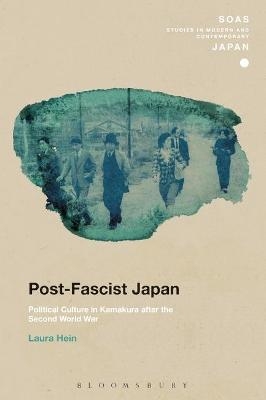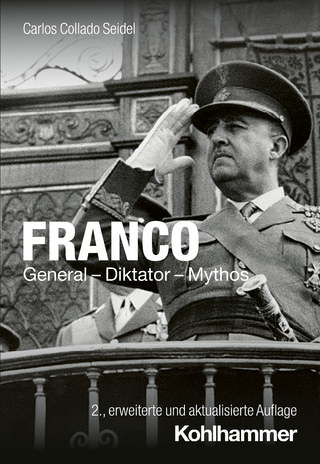
Post-Fascist Japan
Political Culture in Kamakura after the Second World War
Seiten
2019
Bloomsbury Academic (Verlag)
978-1-350-12650-3 (ISBN)
Bloomsbury Academic (Verlag)
978-1-350-12650-3 (ISBN)
In late 1945 local Japanese turned their energies toward creating new behaviors and institutions that would give young people better skills to combat repression at home and coercion abroad. They rapidly transformed their political culture—policies, institutions, and public opinion—to create a more equitable, democratic and peaceful society.
Post-Fascist Japan explores this phenomenon, focusing on a group of highly educated Japanese based in the city of Kamakura, where the new political culture was particularly visible. The book argues that these leftist elites, many of whom had been seen as ‘the enemy’ during the war, saw the problem as one of fascism, an ideology that had succeeded because it had addressed real problems. They turned their efforts to overtly political-legal systems but also to ostensibly non-political and community institutions such as universities, art museums, local tourism, and environmental policies, aiming not only for reconciliation over the past but also to reduce the anxieties that had drawn so many towards fascism.
By focusing on people who had an outsized influence on Japan's political culture, Hein’s study is local, national, and transnational. She grounds her discussion using specific personalities, showing their ideas about ‘post-fascism’, how they implemented them and how they interacted with the American occupiers.
Post-Fascist Japan explores this phenomenon, focusing on a group of highly educated Japanese based in the city of Kamakura, where the new political culture was particularly visible. The book argues that these leftist elites, many of whom had been seen as ‘the enemy’ during the war, saw the problem as one of fascism, an ideology that had succeeded because it had addressed real problems. They turned their efforts to overtly political-legal systems but also to ostensibly non-political and community institutions such as universities, art museums, local tourism, and environmental policies, aiming not only for reconciliation over the past but also to reduce the anxieties that had drawn so many towards fascism.
By focusing on people who had an outsized influence on Japan's political culture, Hein’s study is local, national, and transnational. She grounds her discussion using specific personalities, showing their ideas about ‘post-fascism’, how they implemented them and how they interacted with the American occupiers.
Laura Hein is Professor of History at Northwestern University, USA. She is the author of Reasonable Men, Powerful Words: Political Culture and Expertise in 20th Century Japan (2004) and co-editor of Imagination Without Borders: Visual Artist Tomiyama Taeko and Social Responsibility (2010).
1. Introduction: Post-Fascist Political Culture
2. Kamakura: The Place
3. The Kamakura Akademia and Humanities Education
4. Telling Stories in the Museum: The Kamakura Museum of Modern Art
5. Urban Administration: Social Science and Democracy
6. Conclusion
Bibliography
Index
| Erscheinungsdatum | 27.08.2019 |
|---|---|
| Reihe/Serie | SOAS Studies in Modern and Contemporary Japan |
| Zusatzinfo | 10 bw illus |
| Verlagsort | London |
| Sprache | englisch |
| Maße | 156 x 234 mm |
| Gewicht | 386 g |
| Themenwelt | Geisteswissenschaften ► Archäologie |
| Geschichte ► Allgemeine Geschichte ► Zeitgeschichte | |
| Geisteswissenschaften ► Geschichte ► Regional- / Ländergeschichte | |
| Sozialwissenschaften | |
| ISBN-10 | 1-350-12650-0 / 1350126500 |
| ISBN-13 | 978-1-350-12650-3 / 9781350126503 |
| Zustand | Neuware |
| Informationen gemäß Produktsicherheitsverordnung (GPSR) | |
| Haben Sie eine Frage zum Produkt? |
Mehr entdecken
aus dem Bereich
aus dem Bereich
Gewalt, Umwelt, Identität, Methode
Buch | Softcover (2024)
Spector Books OHG (Verlag)
CHF 49,95
wie Freud im Kollektiv verschwand
Buch | Hardcover (2024)
Klett-Cotta (Verlag)
CHF 34,95


